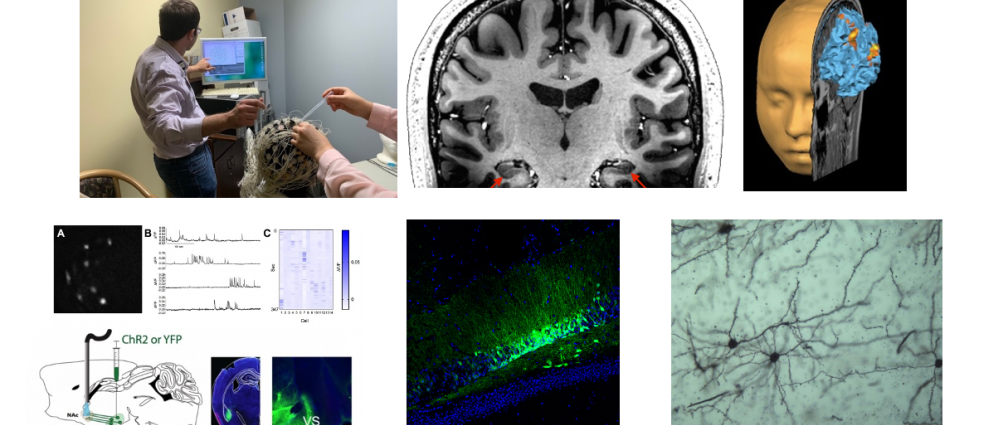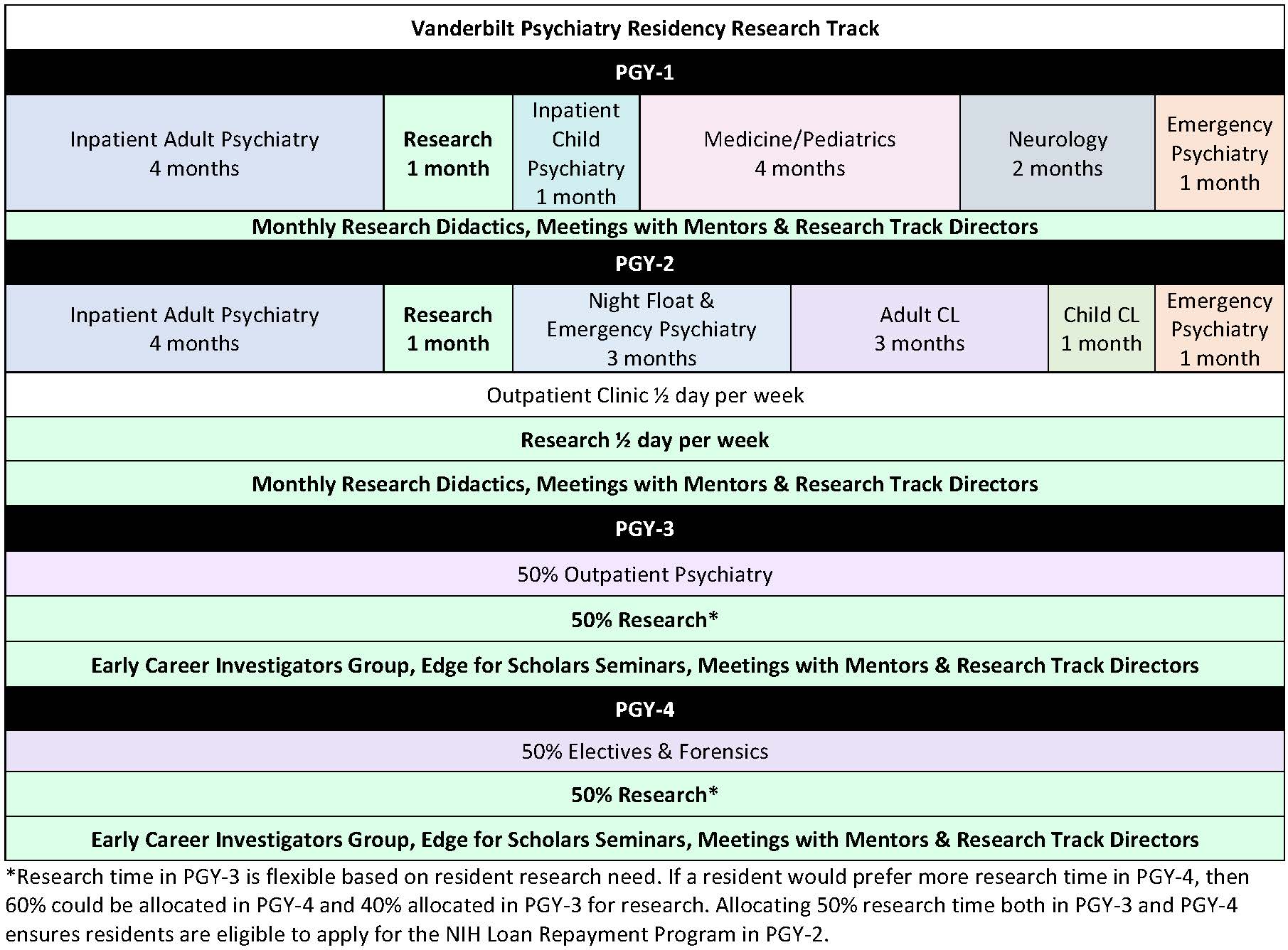Research Track
Introduction
The goal of our Research Track is to train the next generation of academic physician-scientists who will advance the field of psychiatry. Our focus is not only on providing robust clinical training through the residency program, but also to facilitate the development of independent scientists. Toward this goal, the Research Track provides significant protected research time, mentorship, funding, and resources. We are confident that graduates of the Research Track will be well prepared for tenure track faculty appointments and careers as independent researchers, ideally joining us at Vanderbilt.
We aim to train a diverse class of researchers. We encourage individuals with under-represented identities, including race, gender, and sexual orientation, to apply.
Individuals interested in the Research Track should apply to both the Research and General tracks through ERAS. The Research Track has a separate NRMP code (1702400C2).
Protected Research Time
Residents in the Research Track will be provided with substantial protected research time throughout residency. This protected time enables residents to develop an area of research expertise that will propel them toward independent grant funding and tenure-track faculty appointments.
*Research time in PGY-3 is flexible based on resident research need. If a resident would prefer more research time in PGY-4, then 60% could be allocated in PGY-4 and 40% allocated in PGY-3 for research.
Mentorship
We believe the foundation of a successful research career is mentorship. Research Track residents will receive personalized research mentorship from our faculty. Residents may also collaborate with faculty across the medical center and school of medicine basic science departments as well as in the College of Arts and Sciences and Engineering. Please see the mentorship page for additional information
In order to support our Research Track residents throughout their residency, residents will also receive individualized career mentorship from the Research Track leadership.
Funding & Support
The Research Track provides significant financial support for research expenses and attendance at scientific meetings. Research Track residents receive the following guaranteed funding to support their research:
Up to $1,000 in travel per year to attend and present at scientific meetings
Up to $50,000 per resident to support research project expenses.
Resources
Vanderbilt offers numerous of resources for research, including administrative support for trainees submitting grants, including applications to the National Institutes of Health Loan Repayment Program (NIH LRP). We offer grant reviews by senior faculty as well as training in grant writing from Edge for Scholars and the Office of Sponsored Research.
Vanderbilt also benefits from a wide variety of research resources across the university, including research core facilities, computing facilities, and translational research resources.
- Vanderbilt Core Research Facilities
- Vanderbilt University Institute of Imaging Science
- The Advanced Computing Center for Research and Education (ACCRE)
- The Vanderbilt Institute for Clinical and Translational Research (VICTR)
- Edge for Scholars
CONTACT INFORMATION:
If you are interested in applying to our research track residency program please feel free to reach out to the program director with any questions you may have prior to or during the application/interview process.

